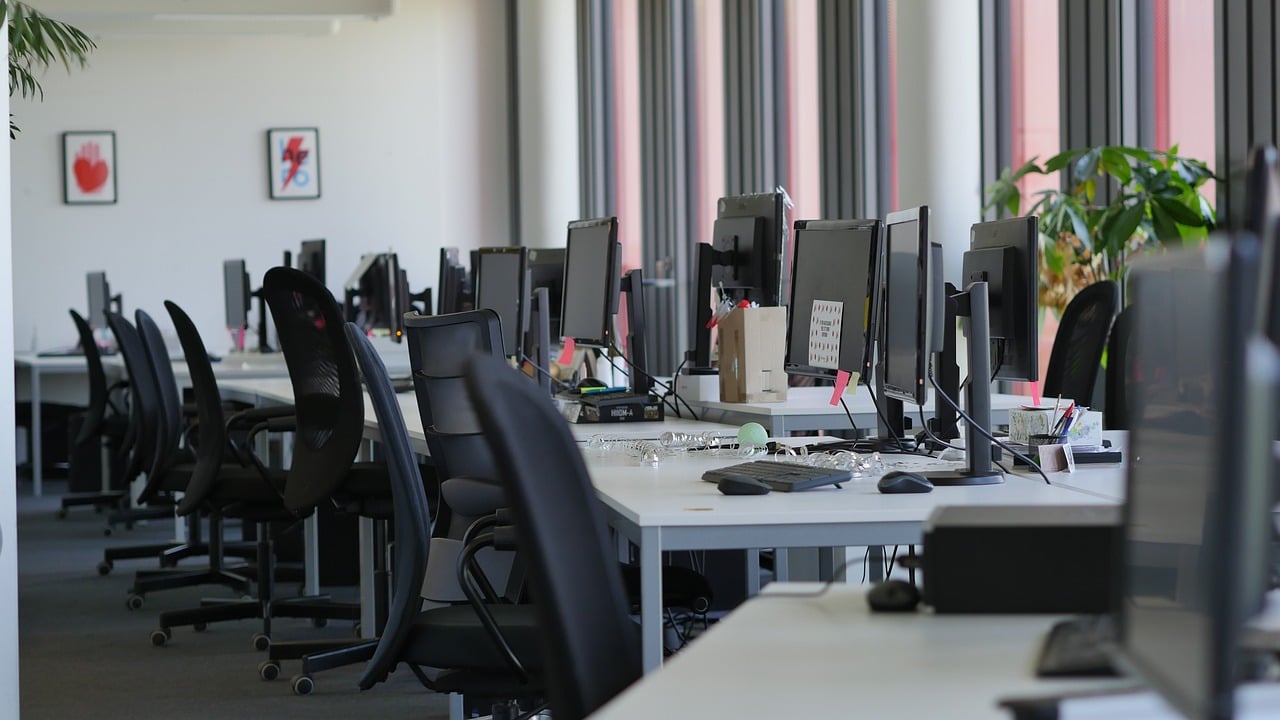Four years after the revolution caused by the outbreak of the pandemic, it’s evident that hybrid work, although not dominant, will continue to be with us for a long time. As per the research results from international consulting firm Cushman & Wakefield, 27% of Poles reconcile office work with home office, and the percentage in cities with more than 500,000 inhabitants is as high as 36%. Meanwhile, employers and property managers are seeking ways to encourage employees to use offices more frequently. As revealed by the report “Office or Home? What Attracts Poles to Office Work”, people who use both locations during the week value the office for its well-equipped spaces for focused work, and the possibility of cooperation and building positive relationships within the team. At the same time, 47% of them reject a top-down imposition of the number of days spent in the office.
One third of office workers in Poland in cities with more than 200,000 inhabitants take advantage of hybrid work, according to a study conducted on behalf of Cushman & Wakefield. It’s also noticeable that the job market after 2020 has adapted to new expectations of some candidates. As of mid-February 2024, similar to three months earlier, every fifth job offer on pracuj.pl platform enabled hybrid work, and every fourth offered hybrid or remote work.
Market data confirms that there is a significant group of people in the largest cities in Poland who split their work between the office and home. Many employers allow such a model, although from an organizational point of view and building corporate culture, they would prefer to increase the presence of employees in the office. Therefore, we asked at the source about what aspects indeed attract people who work in a hybrid mode to the company’s headquarters. For 44% of the respondents, the ability to have face-to-face meetings with a larger number of colleagues is important. At the same time, logistics-related issues are crucial to them – 45% pointed out spacious parking as an important factor, and 28% mentioned office location at a public transport stop, said Ewa Derlatka-Chilewicz, Head of Research, Cushman & Wakefield.
According to Cushman & Wakefield data presented in the series of periodic reports “Marketbeat Poland”, over the past 12 months, the trend of optimization and reduction of space occupied by tenants greatly influenced the activity of office tenants in Warsaw. This is indicated by the number of transactions, which was almost 18% higher than in the record year 2019 in terms of rented space. At the same time, relocations dominated the demand structure in 2023, accounting for about 53% of all contracts signed. This shows that employers are adjusting their operating model to changing conditions – often prioritizing office quality over the number of square meters occupied. This primarily benefits the owners of Class A buildings in central locations, meeting high requirements regarding ESG aspects – both environmental and those related to the health and well-being of users.
Socialization on a larger scale and comfortable working conditions are advantages of the office
As stated in the “Office or Home? What Attracts Poles to Office Work” report, as many as 71% of Poles working in hybrid mode value the flexible work model, but also vastly more than half enjoy when they meet in the office with a larger group of colleagues. Additionally, only 12% prefer to switch to fully remote work or work solely at the company’s premises. At the same time, 28% admit that working outside the office has affected their relationships within the team negatively.
Only some of us have home conditions that can positively impact our efficiency and well-being at work. It is no wonder that one in three employees admits that the company’s headquarters can be an important support in a situation where greater focus is needed – e.g. in the face of renovation or other temporary poor conditions at the place of residence, added Ewa Derlatka-Chilewicz.
The advantages of office spaces that were noted by the surveyed employees also include issues related to equipment and quality – an aesthetic and modern arrangement encourages 38% of them to come, and a high-quality internet connection motivates 35%. That is why they are generally open (85%) to office transformations that better meet the needs of hybrid work, including greater emphasis on team activities and quiet work rooms.
The conclusions from our study, about how important issues related to commuting to work and parking, or individual office functions, are for office workers, are extremely valuable. Especially at a time when not all employers decide to prepare a work environment strategy based largely on employee needs and opinions. In such a situation, when deciding on evaluation categories of new locations, it is worth paying attention to the elements mentioned by Cushman & Wakefield respondents that speak in favour of the office, such as access to diverse catering offer (24%) and well-cleaned and filtered air in the building (24%), explains Mariola Bitner, Head of Workplace Strategy at Cushman & Wakefield.
